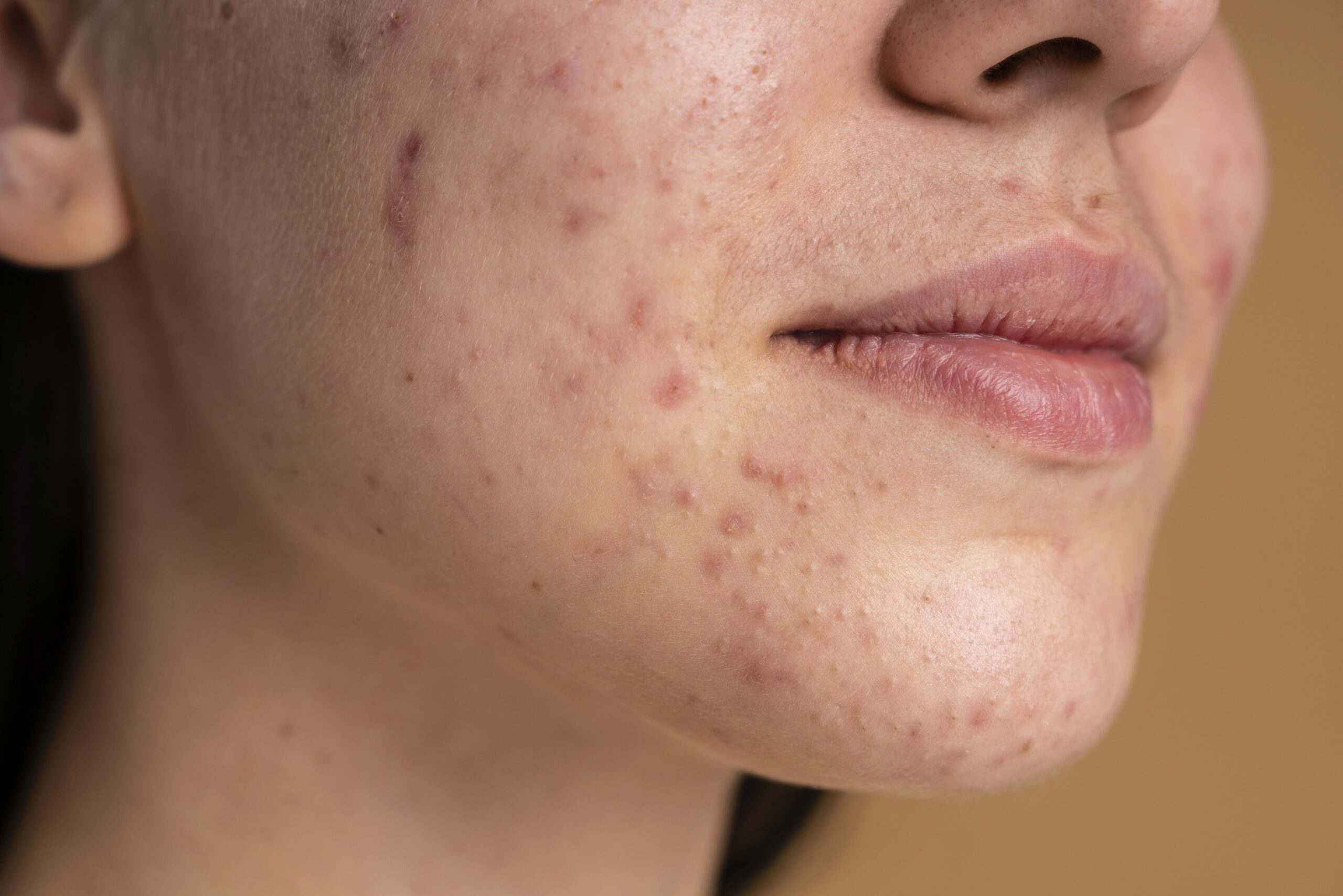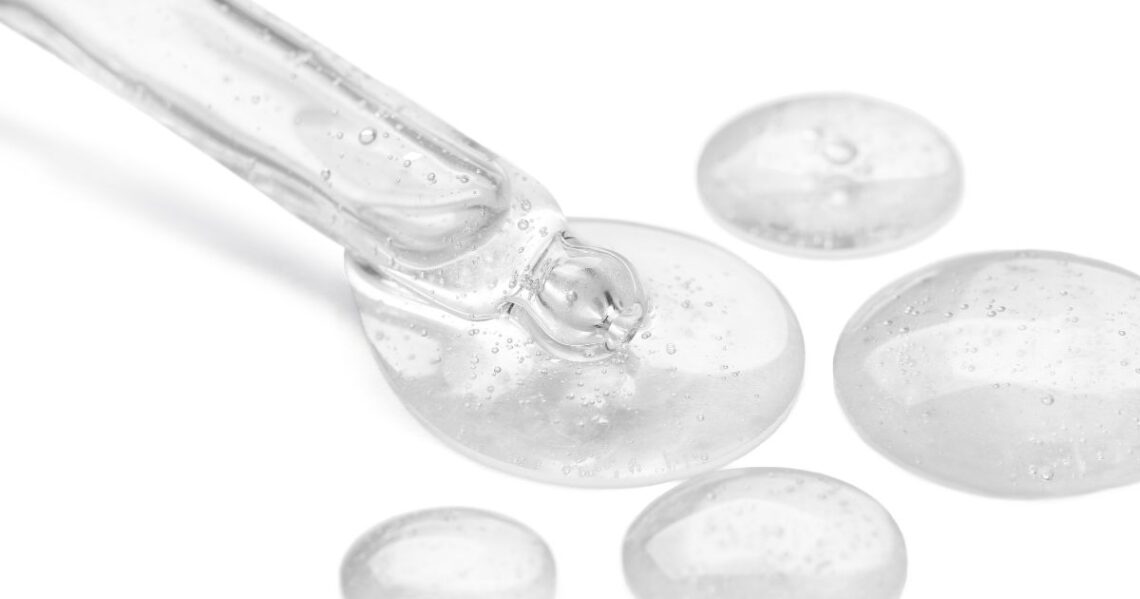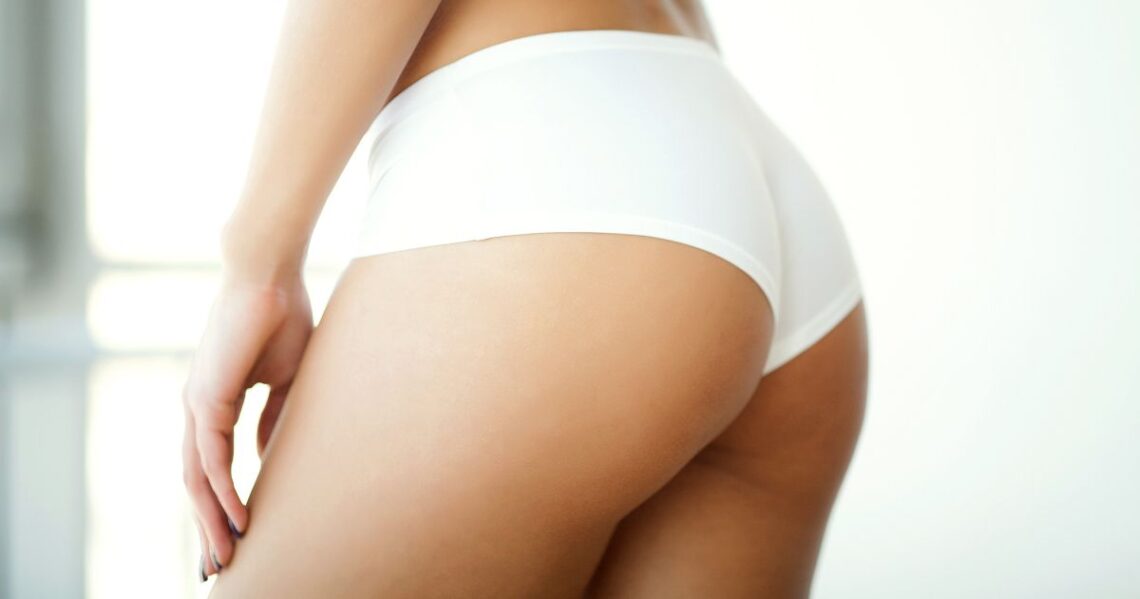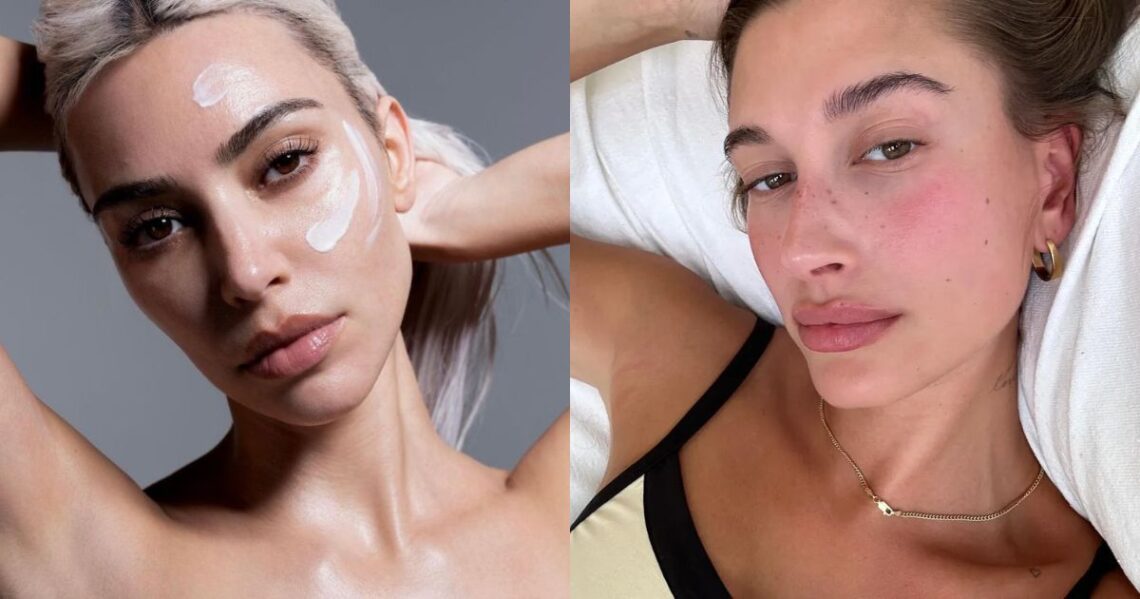Definition of dark spots
Dark spots, also known as hyperpigmentation, are a common concern that many individuals face in their quest for clear and radiant skin. Numerous variables, including sun exposure, acne scars, hormone fluctuations, and ageing, can contribute to these darkened areas of skin. No matter their age or skin type, dark spots can afflict everyone and can significantly influence their self-esteem and general skin appearance.
So, what are we going to discuss about?
In this comprehensive guide, we will delve into the world of dark spots. Exploring their causes, types, and the factors that contribute to their formation. We will shed light on the science behind dark spots, highlighting the role of melanin and the mechanisms that lead to its uneven distribution.
It’s important to note that dark spots can vary in appearance and intensity. They can manifest as freckles, age spots, melasma, or post-inflammatory hyperpigmentation. Each type has unique characteristics and may require a tailored approach for effective treatment.
It’s essential to approach the treatment of dark spots with patience and a comprehensive approach. Results may take time, and consistency is key. By understanding the underlying causes and implementing targeted strategies. You can take proactive steps towards minimizing the appearance of dark spots and regaining your skin’s natural beauty.
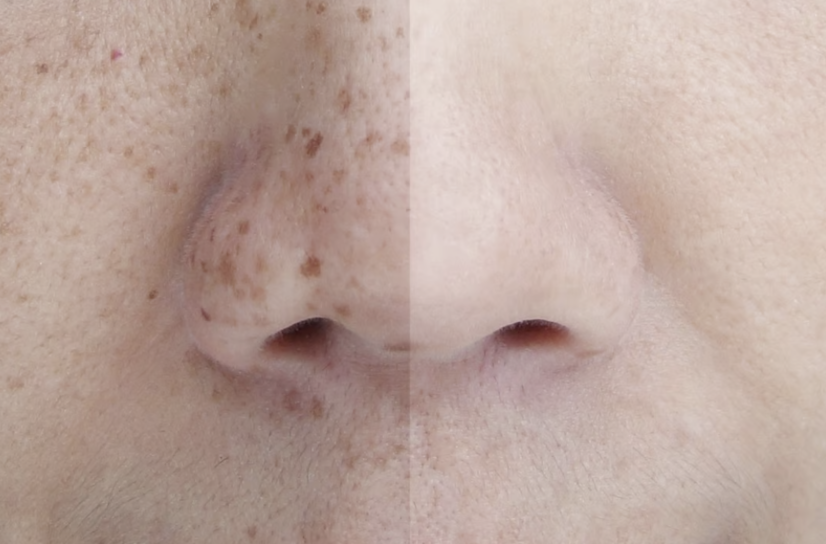
Now, let’s have a lot of what causes dark spots.
Dark spots on the skin, also known as hyperpigmentation, can be caused by several factors. Here are some common causes:
- Sun exposure: Ultraviolet (UV) rays from the sun stimulate the production of melanin, the pigment responsible for skin colour. Overexposure to the sun can lead to an uneven distribution of melanin.
- Post-inflammatory hyperpigmentation (PIH): Inflammatory skin conditions such as acne, eczema, or psoriasis can cause an increase in melanin production. PIH can also occur due to skin injuries, burns, or surgical procedures.
- Hormonal changes: Hormonal fluctuations, particularly during pregnancy (melasma or “mask of pregnancy”) or menopause, can trigger an overproduction of melanin, leading to the appearance of dark patches on the skin.
- Age-related factors: As we age, the skin’s natural ability to regenerate and repair itself diminishes. This can result in the accumulation of sun damage over time, leading to the formation of age spots or liver spots.
- Certain medications: Some medications, such as certain antibiotics, anti-seizure drugs, or hormone treatments, can make the skin more sensitive to sunlight and increase the risk of developing dark spots.
- Genetics: Some individuals may have a genetic predisposition to develop hyperpigmentation, making them more susceptible to dark spots.
Designing a Dark Spot-Fighting Skincare Routine:
🖤 Cleanser: Start your routine with a gentle cleanser that effectively removes impurities without stripping the skin. Look for cleansers with ingredients like glycolic acid or salicylic acid, which can help exfoliate the skin and promote cell turnover. Product suggestion: CeraVe Blemish Control Face Cleanser
🖤 Exfoliation: Incorporate exfoliation into your routine to slough off dead skin cells and promote the renewal of the skin’s surface. Use a chemical exfoliant containing alpha-hydroxy acids (AHAs) like glycolic acid or lactic acid. This helps to fade dark spots and even out the skin tone over time. Start with a lower concentration and gradually increase as your skin tolerates it. Product suggestion: Paula’s Choice SKIN PERFECTING 2% BHA Liquid Exfoliant
🖤 Brightening Serums: Apply a brightening serum or treatment containing ingredients like vitamin C, niacinamide, kojic acid, or alpha arbutin. These ingredients can help inhibit melanin production, fade existing dark spots, and promote a more even skin tone. Apply the serum after cleansing and allow it to absorb before proceeding to the next step. Product suggestion: Murad Environmental Shield VITA-C Glycolic Brightening Serum
🖤 Spot Treatments: For targeted treatment of specific dark spots, use spot treatments that contain ingredients like hydroquinone or retinol. These can help lighten the pigmented areas and promote skin renewal. Apply the spot treatment directly on the dark spots or hyperpigmented areas as directed.
🖤 Moisturiser: Hydrate your skin with a moisturizer that suits your skin type. Look for moisturizers containing ingredients like hyaluronic acid, which helps to plump the skin and retain moisture. A well-hydrated skin barrier can promote healthy cell turnover and overall skin health.
🖤 Sunscreen: Protect your skin from harmful UV rays by applying a broad-spectrum sunscreen with a high SPF. UV exposure can worsen existing hyperpigmentation and lead to the formation of new dark spots. Choose a sunscreen that offers both UVA and UVB protection and reapply it every two hours, especially if you’re spending time outdoors. Product suggestion: Dr. Dennis Gross Skincare Dark Spot Sun Defense Sunscreen
Conclusion
One final thing that you need to remember is CONSISTENCY when treating hyperpigmentation. It may take time to see noticeable results, so stick to your routine and be patient. Additionally, it’s important to note that some ingredients, such as retinol or hydroquinone, can cause sensitivity or irritation in some individuals. Start with lower concentrations and gradually increase usage to allow your skin to adjust.
References:
https://www.today.com/shop/hyperpigmentation-treatments-tips-t227672
https://www.healthline.com/health/acne/products-for-acne-scars#types-of-scars

